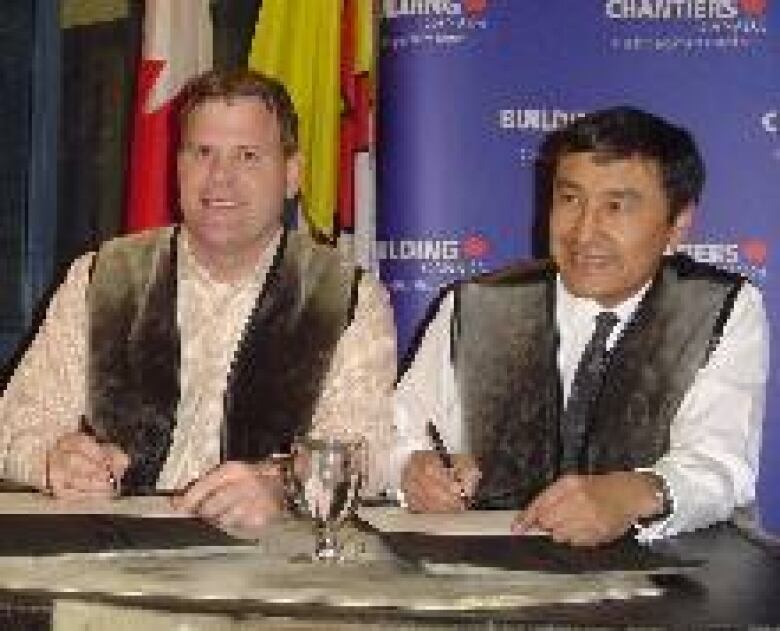Canada will make own decision on polar bear status: Baird
Canada will not necessarily follow the lead of the United States should it decide to list polar bears as a threatened species, federal Environment Minister John Baird said.

"The U.S. government will make their own decisions, just as in Canada we'll make our own decisions," Baird told reporters in Iqaluit on Friday.
The U.S. Fish and Wildlife Service had until Saturday to declare whether it will list the bears as a threatened species under its Endangered Species Act. That decision is now expected sometime in the next week or two.
Listing polar bears as threatened would require U.S. federal agencies to make sure anything they do not jeopardize the bears or the Arctic sea ice where they live. That could include oil and gas exploration, commercial shipping or even releases of pollution that might affect climate.
Scientists have said it would be difficult for Canada to justify not giving polar bears a similar designation if the U.S. does so.
Regardless of how Canada responds to a "threatened" listing in the United States, such a decision would affect people in Canada's North especially in Nunavut, where Inuit hunters profit from U.S. hunters coming north for trophy hunts.
The Nunavut and Northwest Territories governments have lobbied U.S. officials against the proposal.
"We 'll continue to work with our national government in trying to make sure that we impress upon the U.S government that, 'Look, we're trying to tackle climate change but this is a misguided effort to manage our environment,'" Nunavut Premier Paul Okalik said.
Nunavut is home to over half of the Earth's polar bear population, Okalik said. Of the 11 polar bear populations in the territory, all but one have healthy numbers, he added.
Last week, Manitoba put the polar bears on its own threatened species list. That will allow the provincial government to restrict development on the bears' habitat on Crown and privately owned land along Manitoba's Hudson Bay coastline.
The federal committee that evaluates Canadian species had wanted to list polar bears as a species of special concern. However, that has not happened to date. The committee's next report is expected to come in April.
Baird plans to evaluate research
Baird said he plans to look at scientific research on polar bears, as well as consult with Inuit, before making any decision.
While in Iqaluit, Baird held a three-hour roundtable discussion on adapting to climate change with representatives from Nunavut, the Northwest Territories and the Yukon.
Baird said his main goal was to listen to the concerns of northerners on climate change.
"I'm often asked, 'Are we doing enough?' When you're dealing with a problem the size and the scope of climate change we're never doing enough," he said.
"We've got to constantly reach out to do more and to work constructively at an international level with other countries and other organizations, whether it's industry, whether it's environmental groups, health groups, Inuit or other First Nations people."












_(720p).jpg)


 OFFICIAL HD MUSIC VIDEO.jpg)
.jpg)



























































































